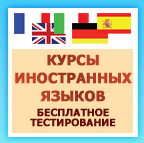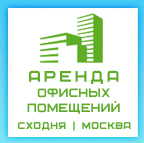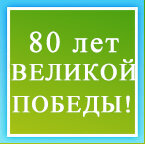

Ассоциация преподавателей иностранных языков
туристских вузов и факультетов туризма
Кафедра иностранных языков и зарубежного страноведения
ПРОГРАММА
II –й Международной научно-практической конференции
«Содержание профессиональной подготовки по иностранным языкам
в неязыковом вузе»
18 апреля 2013 года
9-30 - 10-00 – регистрация участников конференции
10-00 - 10-20 – торжественное открытие конференции, приветствие от ректората РМАТ
10-20 - 12-00 – пленарное заседание
10-20 - 11-20 - English for International Tourism: how to help students of tourism be competitive in a growing industry, Iwonna Dubicka, автор English for International Tourism
11-20 - 12-00 – Интегративный подход к оценке качества профессиональной подготовки студентов, Кальней В.А., д.п.н., профессор, заслуженный работник высшего профессионального образования РФ
12-00 - 12-30 – перерыв на обед
12-30 - 15-00 – работа секций и мастер-классов
12-30 - 13-30 – Workshop: Aspiring to professionalism in tourism: language and professional skills, Iwonna Dubicka
13-30 - 14 -00 – Профессиональные компетенции и фонд оценочных средств (отчет рабочей группы)
14-00 - 15-00 – работа секций
15-00 - 15-20 - подведение итогов конференции, вручение Сертификатов о повышении квалификации, закрытие конференции
Рабочие языки конференции: русский, английский, немецкий, французский
Для участия в работе конференции необходимо в срок до 17 апреля 2013 года направить в оргкомитет в электронном виде на email: lingua@rmat.ru
следующие материалы:
1. Заявку
2. Статью (согласно указанным требованиям)
В течение 2-х суток оргкомитет ответит Вам о получении заявки и вышлет подробную программу конференции. Если этого не произойдет, повторите отправку материалов по указанному электронному адресу: lingua@rmat.ru или уточните информацию о регистрации по телефону: 8-916-084-06-71
В часы работы конференции работает выставка - продажа литературы на иностранных языках зарубежных издательств, а также книг, изданных в РМАТ
Сборник статей и докладов участников конференции (400 руб.) можно будет приобрести в библиотеке РМАТ по адресу: Московская область, г.о. Химки, мкр. Сходня, ул. Горького, д.7, тел.: 8 (498) 691-06-12
 Iwonna Dubicka has taught English since 1989 specializing in business, ESP and tourism. She is currently teaching at ESADE’s Executive Language Center, and is a business trainer with Montaner&Asociados in Barcelona. She has an MA in Communication Studies, and has worked for SEI-EIM at the University of Barcelona, for the British Council in Barcelona, at the Open University of Catalonia (UOC), and was also a Director of Studies for six years. Together with Margaret O’Keeffe, she has co-authored first and second editions of English For International Tourism Pre-intermediate, Market Leader Advanced and Lifestyle Intermediate. In her free time she enjoys Pilates, creative writing and singing gospel.
Iwonna Dubicka has taught English since 1989 specializing in business, ESP and tourism. She is currently teaching at ESADE’s Executive Language Center, and is a business trainer with Montaner&Asociados in Barcelona. She has an MA in Communication Studies, and has worked for SEI-EIM at the University of Barcelona, for the British Council in Barcelona, at the Open University of Catalonia (UOC), and was also a Director of Studies for six years. Together with Margaret O’Keeffe, she has co-authored first and second editions of English For International Tourism Pre-intermediate, Market Leader Advanced and Lifestyle Intermediate. In her free time she enjoys Pilates, creative writing and singing gospel.
Iwonna Dubicka’s topics:
"English for International Tourism: how to help students of tourism be competitive in a growing industry"
The number of tourists travelling abroad hit the one billion mark last year. That’s seven times the total population of Russia. International tourism, one of the world's major industries, is growing by almost 4% every year. What’s more, Central and Eastern Europe is one of the best performers and is growing twice as fast as the global rate. In this growing industry, English language skills are a daily reality and essential for our students to progress in their careers. Tourism students need an understanding of English grammar and vocabulary, as well as an awareness of tourism terms and world knowledge. In this seminar Iwonna Dubicka will look at language awareness, tourism knowledge, and careers in tourism. She will take examples from the new editions of the three-level series of English for International Tourism (Pearson, 2013).
"Aspiring to professionalism in tourism: language and professional skills"
In the global tourism industry, no-one would argue that English is essential. The challenge for teachers of content and language-based courses is that tourism students need to develop not only their language skills, but also their tourism knowledge and professional skills. In this practical workshop Iwonna Dubicka will look at some motivating activities and case studies that will help students of English for tourism improve those skills, and aspire to a professional approach. She will take examples from the new editions of the three-level series English for International Tourism (Pearson 2013).









